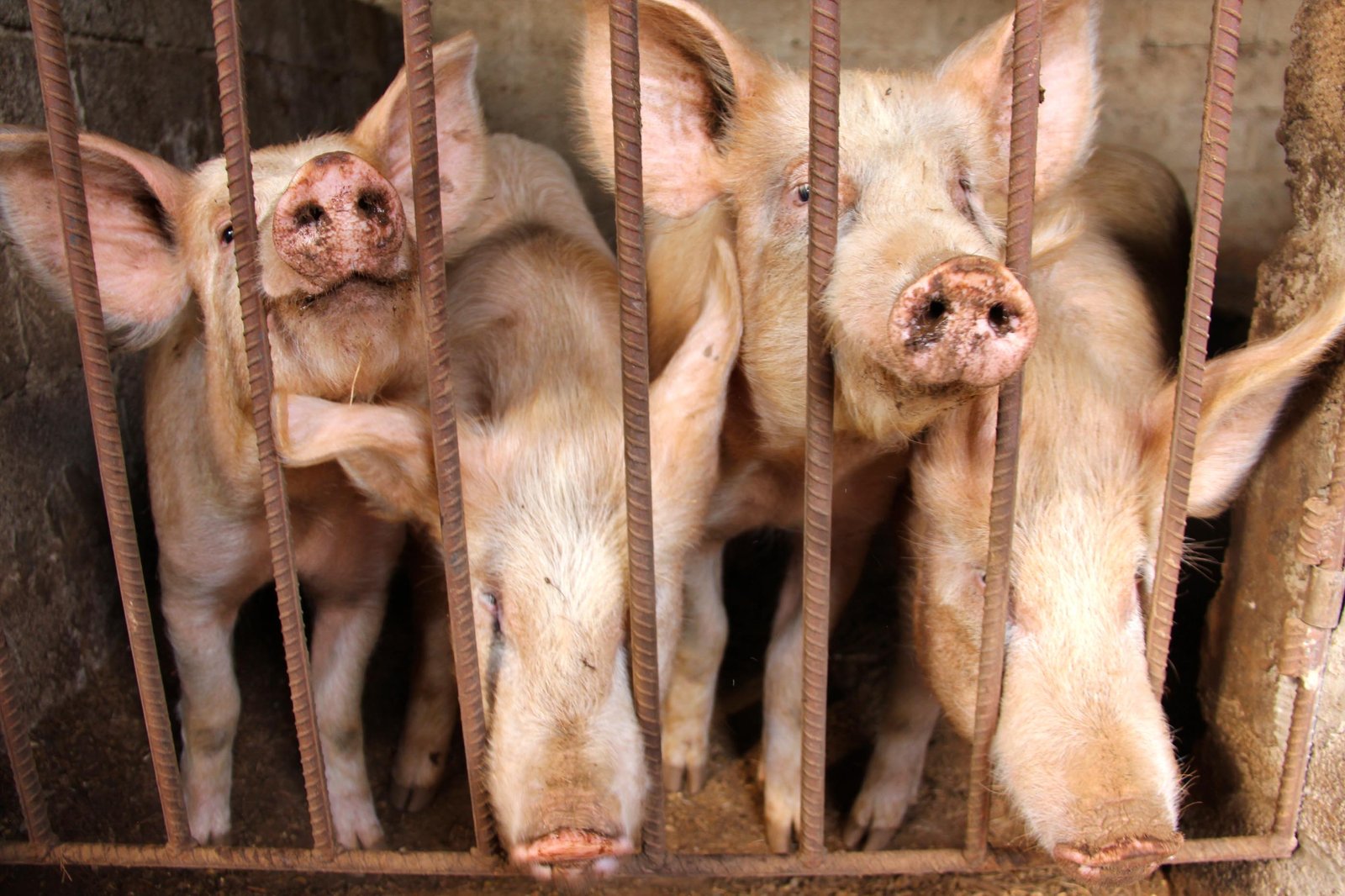What Can We Learn From God’s Food Laws?
The Bible contains laws governing what meats we should, and should not, eat. Are these laws just for our health, or are there other lessons they can teach us?
Pigs are some of the animals labeled unclean to eat in Leviticus 11. 
Modern science and nutrition research have shown that obeying these laws has many health benefits. Our Creator knows what’s good for us and what’s not good for us! However, these food laws teach us more than just how to eat well.
Two ways of life
In the Garden of Eden, God planted two special trees, one called the tree of life and the other called the tree of the knowledge of good and evil (Genesis 2:9). God gave Adam and Eve a very basic instruction: don’t eat of the tree of the knowledge of good and evil (verse 17). This is one of the first recorded commands in the Bible.
God divided animals into two categories: “clean” and “unclean.”
God said it was okay for them to eat the fruit of the other trees in the garden (verse 16) but not the fruit from the tree of the knowledge of good and evil. These two food choices represented two completely different ways of life. The tree of life represented the way of obedience leading to eternal life. The forbidden tree represented the way of disobedience leading to death.
Although fruit from the trees in the Garden of Eden is not available for us to eat today, God is still concerned about what we eat today. He divided animals into two categories: “clean” and “unclean.” Noah was a righteous man and knew of these differences. He obeyed God’s instruction and brought seven (likely seven pairs of) clean animals into the ark, but only a single pair of the unclean animals (Genesis 7:2, 8).
Be separate and holy
God taught ancient Israel that they were to “distinguish between clean animals and unclean” so they would be “separated” from the other nations (Leviticus 20:24-25).
But how did God separate them?
By taking them out of Egypt, rescuing them from slavery and giving them His righteous laws, which would separate them from the surrounding nations (verses 22-23; compare Leviticus 11:45-47).
Obeying the food laws reminds us that we are different from other people and that God is sanctifying us for His special purpose. It was in the context of the food laws that God told Israel, “You shall be holy to Me, for I the LORD am holy, and have separated you from the peoples, that you should be Mine” (Leviticus 20:26). The New Testament echoes our need to be holy today (1 Peter 1:15-16).
The apostle Paul also quoted God’s instruction: “Come out from among them and be separate, says the Lord. Do not touch what is unclean and I will receive you” (2 Corinthians 6:17).
Uncleanness spreads
Of course, what is clean, pure and holy extends far beyond what we eat. God’s law, His name and His Sabbath are holy. God calls on us to be “a living sacrifice, holy, acceptable to God” (Romans 12:1). Our calling is holy and our conduct is to be holy (2 Timothy 1:9; 2 Peter 3:11).
Breaking God’s laws makes us spiritually unclean, defiled and unholy (Ephesians 5:5; Titus 1:15; 2 Timothy 3:2).
Christians must be on the alert against getting caught up in the sins of those who surround them.
Tragically, ancient Israel failed to distinguish “between the holy and unholy,” and the priests failed to teach the “difference between the unclean and the clean” (Ezekiel 22:26). As a result, the nation fell into sins and was led into captivity. The sins spread from one person to another, from one generation to the next, till the whole nation became sinful.
This concept continues in the New Testament where the apostle Paul rebuked the Corinthian church for tolerating a person in the congregation who was committing sexual sins (1 Corinthians 5:1). He warned that if this person wasn’t dealt with, the sin would spread. He famously wrote that a “little leaven leavens the whole lump” (verse 6).
Individuals can learn an important lesson from this: “Evil company corrupts good habits” (1 Corinthians 15:33). Christians must be on the alert against getting caught up in the sins of those who surround them (Exodus 23:2).
God’s law written in our hearts
When Christians first learn the food laws and determine to obey them, they can struggle at first. It takes some years for some to stop craving the unclean meats they used to eat often. But as they obey these laws over time, doing this becomes second nature. They don’t even think about those meats or desire to taste them.
Likewise, God’s 10 Commandments, which teach us how to love, should also be written on our hearts and minds (Hebrews 8:10; Jeremiah 31:33). When God’s law is engraved on our hearts, it becomes second nature to us.
We must revere God in our lives. His laws are designed to help us honor and respect Him. When we deviate from His laws, we are essentially putting our own desires before God and failing to revere Him.
God’s food laws are mostly disregarded in today’s world. Some people understand God’s food laws and intentionally disregard them—while others are completely unaware of them (and many of God’s other laws) and disregard them out of ignorance. But, in the future when God’s Kingdom is established on earth, all will be taught to discern the “difference between the holy and the unholy, and . . . between the unclean and the clean” (Ezekiel 44:23).
By obeying the food laws today, you can take a step toward being able to discern that difference now!
Date Posted: March 17, 2021

 by Isaac Khalil
by Isaac Khalil

